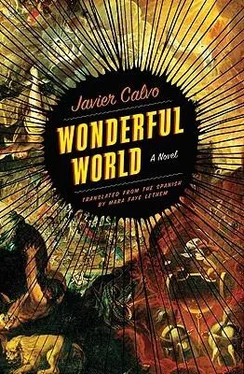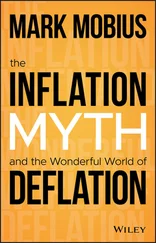Yanel grabs the lower end of the building's fire escape ladder. He climbs up to the first landing and drops onto the steel structure. Aníbal Manta crosses the street with that paradoxical gracefulness of his that makes you think of superheroes genetically altered by radiation. Yanel picks up the backpack his partner tosses to him and then releases the ladder. The entire steel structure trembles and clatters and threatens to collapse under Aníbal Manta's weight.
Yanel unfolds his case of small, shiny instruments in front of the fire exit. He chooses from the selection of rods and tiny tools that look like miniature dental equipment and spends a minute or two working on the lock. In spite of the cold, a drop of sweat slides down his cheek and falls onto the frost-covered steel of the fire escape. Followed by another. The infinitesimal little noises that his actions produce inside the lock are transformed into an electronic signal and monitored by a little digital device that Manta has stuck to the surface of the door next to the lock. Yanel moves his rods with his gaze fixed on the little device's screen and finally a click is heard, loud enough to cause Manta to let out a satisfied grunt. They both gather up all their vaguely dental equipment as fast as they can and push the door open. Yanel sniffs and Aníbal Manta realizes that what he had thought were drops of sweat were actually tears. Yanel dries his cheeks and takes a deep breath. Like a tormented actress regaining her composure just before going onstage to act in a comedy.
Inside the building, they both place bands with special nonreflective flashlights onto their heads. They have a dark hallway in front of them. From the building's blueprints they know that the hallway ends at the back exit of the gallery's office complex. And that is where they stop. In front of the door's security panel with its magnetic card reader. In front of the office's alarm system box that hangs above the door. Everything seems to converge at that door for an instant. An instant of cosmic respect. Of reverential fear. Aníbal Manta farts in the silence of the hallway.
Yanel runs the copy of Hannah Linus's magnetic card through the reader. A little green light turns on. Beneath the vaguely bluish glow of Yanel and Manta's nonreflective flashlights, Hannah Linus's complex of offices is somewhat like an underwater world. The switched-off computers are banks of coral. The photos of family members, stuffed toys, and other artifacts designed to humanize the desks are the remains of shipwrecks. The broom closets are dangerous underwater caves. On the other side of the office complex lies the door to the gallery. The real Treasure Cave. Yanel opens it with the copy of the card.
The two intruders remain in the threshold for a moment. The gust of air-conditioning that comes in from the gallery brings with it a scent of old things. A scent of wood and earth and something that could be the aroma of moth-eaten fabric stored at the back of a closet. They both look at their watches. Two minutes to midnight. Their operation has so far taken four and a half minutes.
The Night of the World Launch of Stephen King's New Novel is extremely cold and triggers that feeling of distress you get in the seconds before a great disaster. Aníbal Manta and Eric Yanel noticed it in the car on the way to the Hannah Linus Gallery. Hannah Linus herself is noticing it right now, in the form of a sexual session with Saudade that is less satisfying and exhausting than usual and much less filled with moments of evil, self-degrading pleasure. Marcia Parini notices it as a vague fear that something terrible will happen in the discothèque where she is having drinks with a potential sexual partner. Raymond Panakian notices it in the middle of his delirium tremens shakes. Everyone notices it, although just during a few seconds of confusion. Objects are more defined than normal. The fine hair on your skin stands on end when touched, with the exacerbated sensitivity of a high fever. The same empty gallery that on any ordinary night would be placid suggests imminent catastrophe. Like those things that hunt children in their dark bedrooms. Those nameless, shapeless things.
Aníbal Manta and Eric Yanel leave their backpacks on the floor and take out the zippered bags designed to transport fragile works of art. They are silver bags that from the outside are strangely similar to the bags used to transport refrigerated foodstuffs. Each one of their movements inside the gallery has been scrupulously rehearsed and calculated. To save time and enhance the operation's internal efficiency. They take the four St. Kieran Panels off the wall and leave them on the floor next to their backpacks and zippered bags. The distance between the edges of each painting's base and the hooks that hold it to the wall have been replicated to the millimeter. Everything is going well, in spite of the vague, general sensation that everything is going badly. Then something happens. The two intruders look at each other. At first it's just a slight trembling of the outlines of things. It takes them a moment to realize that it's the light flickering. Or, better put, the lights. The pilot light of the gallery's security circuit. The glow of the streetlights that enters through the gallery's skylight. Even the light from the flashlights attached to their heads. Everything blinks for a second. And then goes out.
Aníbal Manta and Eric Yanel remain in the dark for a moment. Listening to the noise of their own breathing. Even though they're at least three feet away from each other, the darkness is so complete that they can't make out each other's movements. The world seems to have just disappeared.
“What's going on?” says Yanel.
“It's a blackout,” says Manta.
Neither of them mentions the fact that their battery-powered flashlights have also gone out. They deliberately don't mention it.
“Let's wait.” Manta lifts a finger even though he knows Yanel can't see him. “And let's not lose our cool.”
They both remain in their places. After a moment an erratic noise is heard, coming from where Manta thinks Yanel is. Some sort of soft, damp cough that slowly turns into a choked, hoarse weeping. Aníbal Manta takes the band off of his head and taps the flashlight with his finger. He brings it to his ear with a frown. Perhaps unconsciously imitating the classic gesture of bringing a wind-up watch that's stopped working to one's ear. A second later, as he's placing the elastic band around his head again, the lights come back on with a flicker. The pilots of the security circuit and the flashlights and all the rest. The blackout, if that's what it was, lasted less than half a minute.
Manta holds his breath. He waits a second. Two. Three. But nothing happens. The return of the electricity didn't set off the alarms. He doesn't hear the symphony of sirens, bells and howls that usually fills the streets when the electricity comes back on after a power outage. Everything is just as it was before. As if the blackout had never happened.
Manta takes a look around. Then he kicks Yanel, who is sitting on the floor with his back against the wall and whimpering with his face sunk into his hands. Yanel lifts his damp face and looks around with a frown. Four minutes later they have hung the copies of the paintings and put the originals into their backpacks and are back on the street. Walking away from the gallery with nimble, but not hurried, steps. Just as the centuries-old tradition stipulates that criminals should flee crime scenes. Precisely calibrating the speed of their flight.
Eric Yanel stops in the middle of the street. With a frown. With his meticulously waved and conditioned hairdo transformed into a twisted grotesque Mohawk. Like one of those comedic characters that get caught in bad weather and whose hair freezes into impossible crystalline forms. He makes a half turn and stares at the gallery building at the end of the street.
Читать дальше












